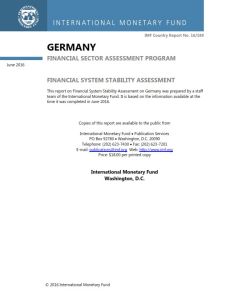
Read or listen offline
Recommendation
With two global systemically important financial institutions – Deutsche Bank AG and Allianz SE – and one of the world’s largest central counterparties – Eurex Clearing AG – Germany’s financial sector is a bulwark in the euro area and the world. Major financial reforms are central to the country’s ability to withstand market ructions. Yet as the International Monetary Fund elucidates in this detailed report, risks remain in the form of potential frictions that may arise from a new supervisory infrastructure as well as from low interest rates’ drag on profitability. getAbstract recommends the IMF’s erudite piece to financial professionals, economists and investors.
Take-Aways
About the Author
The International Monetary Fund advises member nations on policy issues and works to promote economic stability and well-being.


































Comment on this summary or Start Discussion